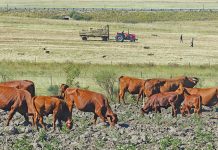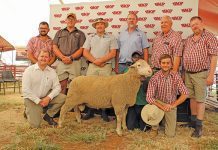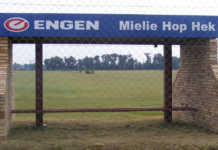To boost their beef without compromising their superior milk, Dr Carl Muller is crossing Jersey cattle with Fleckviehs. Wouter Kriel reports.
Jersey cows are very popular with South African dairy farmers, known for their excellent milk yield and milk with a high protein and butterfat content. But rearing bull calves and selling cull cows for beef generates little income. To improve this, Jerseys need to be crossbred with breeds that have better beef potential, says Dr Carl Muller of the Western Cape Department of Agriculture’s Institute for Animal Production, at Elsenburg in Stellenbosch.
Keeping milk quality Crossbreeding Jerseys with most beef breeds decreases milk production, making the animals unsuitable as milk cows. However, Dr Muller is currently researching the potential of crossbreeding Jersey cows with Fleckvieh bulls, a Bavarian cattle breed with excellent dairy and beef qualities. The Fleckvieh is a Simmental-derived breed with milk production similar to Jersey milk regarding quality, fat and protein levels. Therefore crossbreeding shouldn’t affect the crossbred cows’ dairy production, says Dr Muller.
Crossbred cows also have improved reproductive performance, which will reduce dairy production costs as there are fewer unproductive cows in the herd. 25% heavier Dr Muller’s research is still at an early stage, with the first calves born in 2006. The first round of insemination resulted in 63 Jersey cows calving 28 pure-bred Jersey calves and 26 Fleckvieh x Jersey calves. The average birth weight of the Fleckvieh x Jersey crosses was 17% higher than that of the pure-bred Jersey calves.
When considering each calf’s average daily gain and birth weight at six months, the calculated live weight of Fleckvieh x Jersey calves was 25% higher. Preliminary results indicate that under similar feeding conditions, Fleckvieh x Jersey heifers tend to grow at the same rate as Jersey bull calves. This could imply crossbred heifers should be fed at a lower level than purebred heifers to prevent excess fat deposition in the udder, which would negatively affect milk yield after their first calving, says Dr Muller.
The main emphasis of the project is the milk production and reproductive performance of crossbred cows in comparison to purebred Jerseys. According to Dr Muller, the final results are still some distance in the future. Contact Dr Carl Muller on (021) 808 5111.








